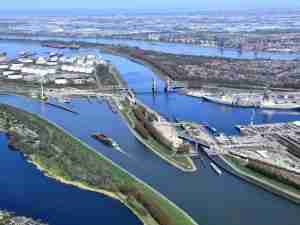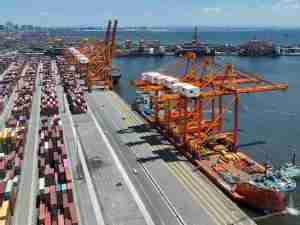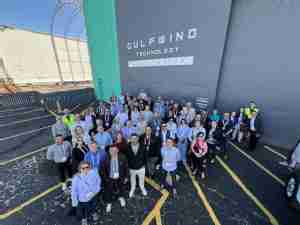A letter from the Hong Kong government's marine department (HKMD) dated Nov. 9 and seen by Reuters showed the authority had given notice to the owners of the 19 ships.
Despite the move to de-flag Iranian ships, China continues to be the biggest taker of Iranian oil - a vital revenue earner for Tehran as it struggles with Western sanctions imposed over its disputed nuclear program.
Hong Kong had been urged by U.S. pressure group United Against Nuclear Iran (UANI) to end the flagging of 19 dry bulk ships, which the group said were owned, managed or operated by IRISL and its front companies.
"As it is of paramount importance to HKMD in safeguarding the quality of Hong Kong ships, HKMD has therefore taken action already in notifying the owners of these 19 ships for the closure of the registration in Hong Kong within 90 days beginning from the date of the notice being served," S.F. Wong, Hong Kong Shipping Register's general manager, said in the letter.
"Whether or not these 19 ships and the associated companies are acting on behalf of, or at the direction of, IRISL would be a question of fact."
IRISL officials could not be immediately reached for comment on Monday.
Tough sanctions imposed by the European Union and the United States have tightened the screws on Tehran, which relies on its shipping trade for imports including food, consumer and industrial goods.
Many foreign companies have pulled out for fear of losing business in the United States and due to the complexities of arranging deals that are exempt from sanctions.
IRISL, Iran's top cargo carrier, has been on a Western blacklist of sanctioned entities for years, accused of transporting weapons, which it denies.
The carrier, whose fleet includes dry bulker and container ships, has tried to dodge sanctions by changing its flags and setting up front companies, the U.S. Treasury and the EU have said.
The world's top 13 ship classification societies including the Korean Register of Shipping (KR), which provide certification vital for securing insurance and ports access, have pulled out of Iran, adding even more pressure on Tehran.
Wong said KR had confirmed to HKMD it would not conduct any survey or audit from Jan. 1, 2013 on the 19 ships.
"Given KR has effectively ceased to provide services or support to the company for managing the Hong Kong ships, HKMD does have concern about the safety and the quality of these ships," Wong said in the letter.
High Stakes
A spokeswoman with the HKMD said on Monday that whenever there is evidence, such as a lack of certification, that the seaworthiness of any Hong Kong-registered ship could be in question, such a vessel may be de-registered.
"Hong Kong has always committed to discharge international obligations in implementing United Nations' sanctions and will continue its efforts in exercising due vigilance to exclude any company or ship under UN sanctions to be on the Hong Kong Shipping Register," she said, without giving further comment.
China is still Iran's top trading partner. Iranian crude volumes received by China have been below contracted levels since September, however, because Iran's tanker fleet, the sole transporter of its crude to China, has been struggling to meet delivery schedules, trade sources have said.
"After Sept. 11, Hong Kong has proved itself time and again to be very compliant with all U.S. regulations with regards to supply chain security. It is not surprising they would de-register the ships," a European ship industry official said.
"The Chinese are still buying oil, and this is a clear illustration of the one country, two systems principle."
Hong Kong, a former British territory, returned to Chinese rule in 1997 under a deal that preserved much of its autonomy. Under a "one country, two systems" formula, Hong Kon









